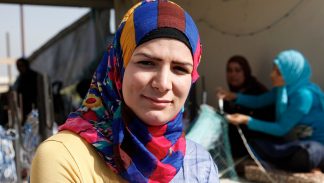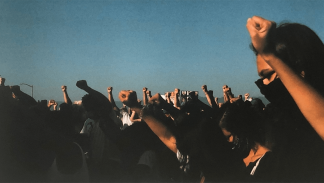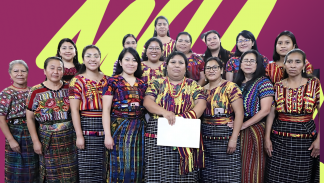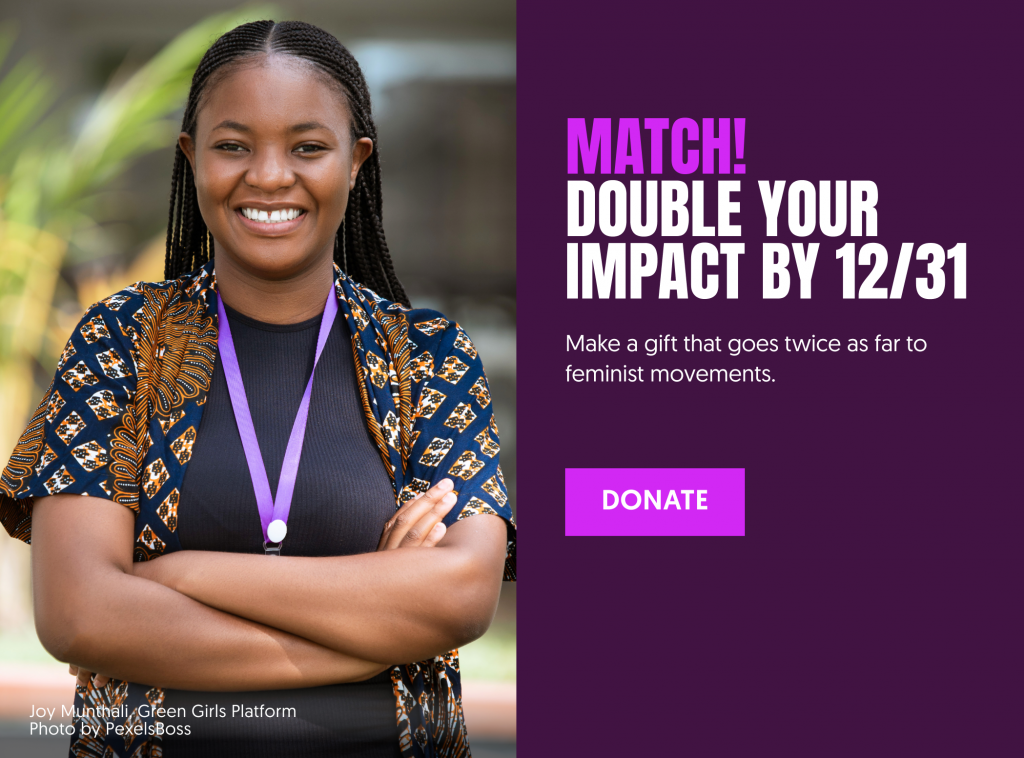Wasna Sali Mahdi
Wasna is a 24-year-old mother of three. After being abused by her husband and trying several times to formally divorce him (a request which the local courts denied), she boldly left him, despite threats from him and even from her own family. With no support, Wasna went on a difficult journey alone from Baghdad to Kurdistan. “I feel everyone needs freedom. In my previous life, I saw an imbalance in power between men and women,” says Wasna. “I can’t accept it. That’s why I escaped it.”
When she arrived in Kurdistan, Wasna connected with Global Fund for Women grantee partner Asuda: Combating Violence Against Women in Iraq. Asuda gave Wasna shelter and supported her as she began to recover from her traumatic experiences. The group also provided crucial legal support to Wasna in her continued fight to divorce her husband and gain custody of her children. Without any social support system, including from her family, Wasna states that the organization has been her only source of protection, and that with them, she feels safe. “Honestly, my life was hell. I was harmed, beaten every day. Every day there was humiliation. There are scars on my body,” says Wasna. “Now, there is a difference. When I came to Asuda, I got rested. All the fear went away from me. My personality came back to me. I was not that destroyed girl that every day was getting beaten and humiliated. I felt relieved.”
“I didn’t have any freedom in my life. Even for the smallest things, I had to ask for my husband or family’s opinion to go outside. Everything was limited in my life,” says Wasna. “Asuda helped me to understand how human beings should live.”
Apart from gender-based violence, Wasna sees many other ways women in Iraq are oppressed, including not being allowed to go to school and being forced to continue the traditional practice of early marriage. She says learning about women’s rights with Asuda has opened her eyes to what women and girls in Iraq are missing. “The rights of women are everything. I won’t stop fighting for my rights. I know how to defend myself and I know how to act,” says Wasna. “In comparison [to my situation before], now I know what a woman needs in her life. Now I feel free. I feel how humans are respected.”
Wasna is still recovering from her trauma, and says “it’s been months since I have seen my children or heard their voices.” While she continues her legal fight for a divorce and custody of her children, she hopes to eventually leave Iraq and start a new life for herself. Looking forward, Wasna is determined to work for a humanitarian organization, like Asuda, to protect women against violence and raise awareness about women’s human rights. She says, “Asuda helped me to not feel afraid. They helped me to finally know that there are other options in my life. They helped me to rebuild my personality in a strong way and now I believe in myself. That’s why I said if someone needs my help, I will try to give them those rights or support. I want to build something better for myself and for others, for the sake of all the women who face this violence.”
I feel everyone needs freedom. In my previous life, I saw an imbalance in power between men and women. I can’t accept it. That’s why I escaped it.Wasna Sali Mahdi



